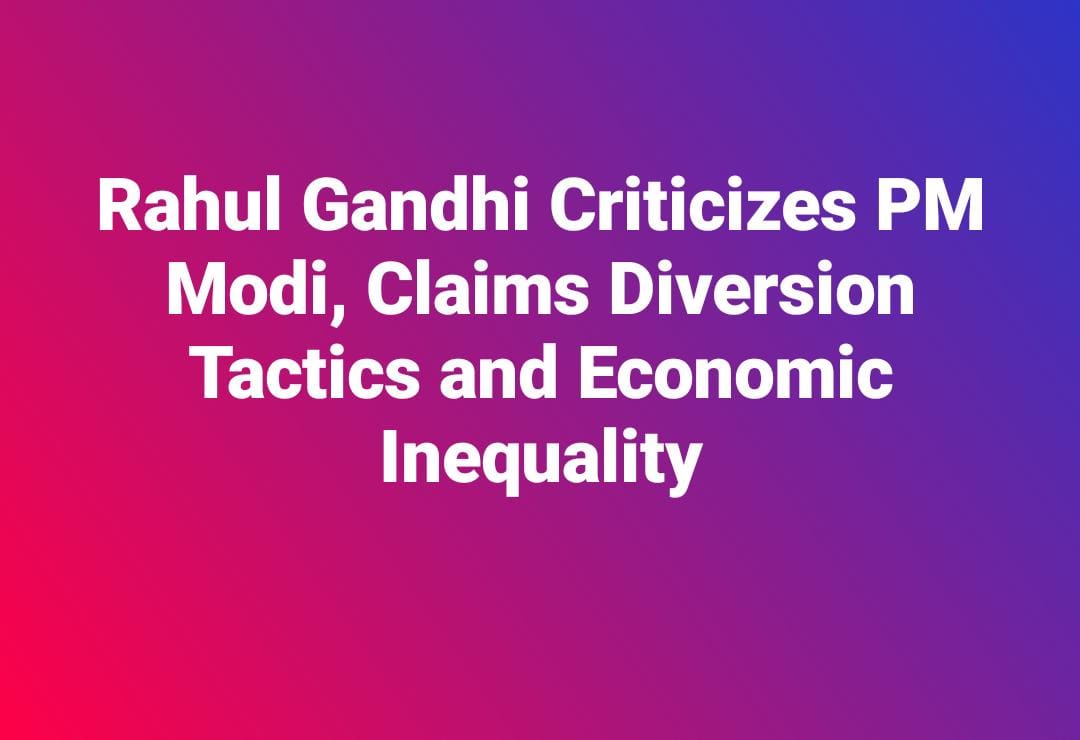WebDesk National
26 April
Sandeep Dhand Ludhiana
Former Congress president Rahul Gandhi launched a scathing attack on Prime Minister Narendra Modi, accusing him of employing diversionary tactics and exacerbating economic inequality in the country. Addressing a rally, Gandhi asserted that Modi is fearful and capable of shedding tears on stage in response to criticism, referring to recent accusations leveled by the Prime Minister against the Congress.
Gandhi highlighted Modi’s tendency to deflect attention by discussing issues such as China, Pakistan, and symbolic gestures like clapping hands and flashing mobile torchlights. He emphasized that the real concerns plaguing India are poverty, unemployment, and inflation, issues that only the Congress party can effectively address. Gandhi criticized Modi for allegedly favoring the wealthy elite, claiming that his policies have further enriched a select few while neglecting the plight of the majority.

Drawing attention to economic disparities, Gandhi pointed out that a mere one percent of the population controls 40 percent of the country’s wealth, leaving marginalized groups like Dalits, other backward classes, minorities, and the impoverished without adequate opportunities. He vowed to redistribute wealth to benefit the country’s poor and marginalized communities, contrasting this pledge with what he perceives as Modi’s pro-elite policies.
Gandhi also accused Modi of implementing a flawed Goods and Services Tax (GST) system, which he deemed culpable for exacerbating economic inequality and burdening small businesses. He reiterated his commitment to rectifying these injustices and ensuring a fairer distribution of wealth and opportunities for all Indians.
The verbal sparring between Gandhi and Modi underscores the ongoing political tensions in India, as both leaders vie for public support ahead of upcoming elections. While Gandhi portrays himself as a champion of economic equity and social justice, Modi defends his government’s record and seeks to discredit the opposition. The exchange reflects broader debates surrounding economic policy, social welfare, and governance in contemporary India.
